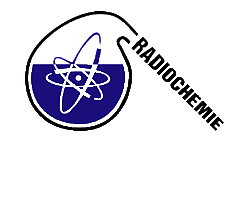Conveners
Radiopharmaceutical Chemistry, Labelled Compounds 1
- Ondřej Lebeda (Nuclear Physics Institute, Academy of Sciences of the Czech Republic)
- Alexander Popkov (Samo University)
Ms
Martina Benešová
(DKFZ Heidelberg)
13/05/2014, 15:30
Radiopharmaceutical Chemistry, Labelled Compounds
Invited
New theranostic radiopharmaceuticals for rapid visualisation of prostate cancer and the highly effective radioendotherapy are of utmost clinical interest. Since the Prostate-specific membrane antigen (PSMA) is upregulated in nearly all prostate cancers compared with the rather low expression levels in normal tissue, PSMA can be considered as an attractive target for the diagnosis and therapy...
Prof.
Aleksander Bilewicz
(Institute of Nuclear Chemistry and Technology)
13/05/2014, 16:00
Radiopharmaceutical Chemistry, Labelled Compounds
Verbal
Alpha particle emitting isotopes are in considerable interest for radionuclide therapy because of their high cytotoxicity and short path length [1]. Unfortunately, all available emitters have serious disadvantages: 211At forms weak bond with carbon atoms in the biomolecule and in the case of 212Bi, 213Bi and 226Th short half-life often limits the application of these nuclides. However, the...
Dr
Antonia Denkova
(TU Delft)
13/05/2014, 16:15
Radiopharmaceutical Chemistry, Labelled Compounds
Verbal
Alpha radionuclide therapy has a great potential in the fight against cancer as proven by a large number of pre-clinical and clinical studies. In vivo generators capable of delivering a highly efficient cascade of alpha particles are also steadily gaining importance. At the moment 225Ac is the most relevant radionuclide that can serve as an in vivo generator, providing four alpha particles...
Ms
Robin de Kruijff
(Delft University of Technology)
13/05/2014, 16:30
Radiopharmaceutical Chemistry, Labelled Compounds
Verbal
In the fight against cancer, it is of utmost importance to damage diseased cells whilst leaving healthy tissue unaffected. Vesicles composed of amphiphilic block copolymers have been proven to be promising nano-carriers, which are capable of transporting a variety of pharmaceuticals to tumour sites [1]. Their application can be extended to the field of nuclear medicine by designing ultra...
Dr
David Teze
(CNRS)
13/05/2014, 16:45
Radiopharmaceutical Chemistry, Labelled Compounds
Verbal
Astatine 211 is considered to be one of the most promising candidates for targeted alpha therapy (TAT)[1,2] and it is the subject of a wide research program in Nantes (France). A carrier molecule should transport At-211 to the cancer cells where alpha-particles emitted by the radionuclide would destroy the target. However binding astatine to cancer selective carrier molecules remains a...

